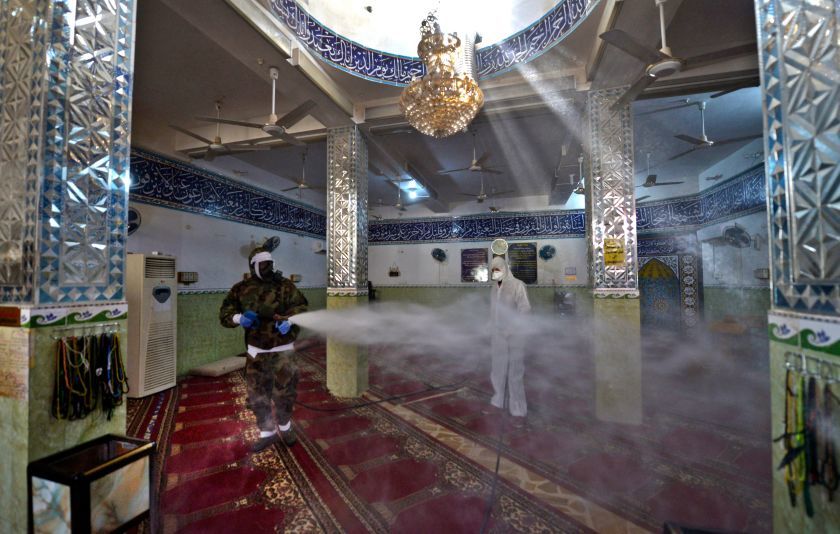
The Los Angeles Times reports on the effects that the Covonavirus pandemic is having on the Middle East and on the Muslim communities there, and here are some snippets from the piece:
–– Arguably the biggest loss for the Muslims in the region (along with 1.9 billion Muslims worldwide) came early in the crisis: In the first week of March, Saudi Arabia suspended the Umrah, the so-called little pilgrimage, to Mecca and Medina, disrupting the travel plans of millions. For the first time in recent history, the Kaaba, the black cube-like structure that is Islam’s most important site, was devoid of its pilgrims. Worse, the outbreak now imperils the Hajj, the main pilgrimage that every Muslim must do once in their lifetime and that was set for July. Last year, some 2.5 million people participated. (More than 600,000 have already registered for visas this year.)
— As March progressed and the number of infected kept climbing, Saudi Arabia extended the suspension to all prayers in mosques. Other Gulf countries, including the United Arab Emirates, Qatar and Bahrain followed suit.
— …religious authorities in Egypt, whose 77 million Muslims had until Saturday continued to gather for prayer. There, the coronavirus outbreak had even changed the athan, the call to prayer, a fixed presence in the soundtrack of daily life across the region. It now exhorts believers to “pray at home.”
— Grand Ayatollah Ali Sistani in Iraq this week said it was obligatory upon Muslims to avoid physical contact; those who suspect themselves to be infected or are exhibiting symptoms should not mix with people. If they do and infect someone else who subsequently dies, they would have to offer up “blood money.”



